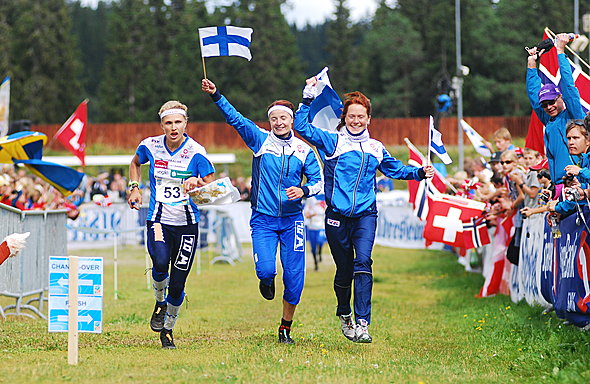
– The qualification race for long distance should be removed, the long final stays as individual start, every competition day is a medal day, the number of medal races is proposed to be extended from the current four to five or six. This is part of the content of the WIF (WOC in the Future) intermediate report according to an article published today at the IOF page today. – The programme should be formed to support the attendance of new orienteering nations, e.g. by being structured so that it is possible to take part in only part of the WOC. Also, all runners who completed a course should have a place in the result list of a final.
– The WIF group has in its intermediate report concluded that a future WOC should be developed in keeping with the tradition. Both the long distance as an individual interval start format and the relay as it is known today, a separate three leg relay for men and women, are proposed to be part of the future programme. Furthermore, the group is proposing to introduce a sprint-style relay with mixed teams of two men and two women, such as on the World Games program.
This is an excerpt from an article published today at the IOF page. Read the full article there.
Well received?
The highlighted intermediate results from the WIF work group should be well received in the orienteering community. A majority of the commenter want the long distance to remain the way it is. Also, the 3-leg relay for men/women has been a point of discussion – very few have wanted to remove this in favor of a mixed relay. Having two relays is much less controversial.
Removing the long distance qualification might be a bit controversial among some – depending on how the qualification for the long distance is set up. However, as all runners who completed a course should have a place in the result list of a final, it is probably thought that this is more important to the “smaller orienteering nations”.
The question about the chasing start, mass start and the format of the middle distance are not touched in the intermediate results from the WIF work group – however the decisions highlighted should be received positive among many. What do you think?
 World of O News
World of O News
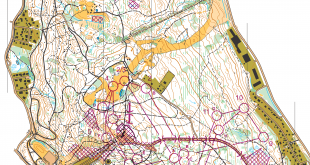
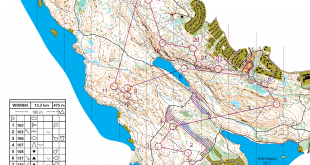

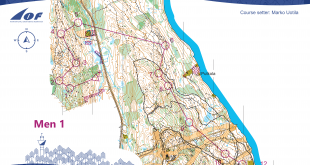
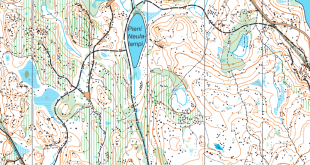
That the Long distance stays intact is positive. It is good that the IOF at least is doing something right.
But I do not belive that the sport benefits from adding disciplines at WOC. More gold medals means less value per medal. Inflation is NOT a good thing when it comes to championships…
I see they feel the small nations will feel better about themselves if they are in a final results list. This is absolutely ridiculous! If they qualify for a final then it is a big achievement, in comparison to completing a race which means nothing
Under ‘possibly related posts’, I first read: “Who do you want to punch?” Silly me.
I agree with LQ, getting rid of a long qualification, in my opinion, is a bad idea. I also think that having everybody on the results list isn’t necessarily a bad idea, but I would segregate it. For the smaller countries, making a WOC Final is the goal! Then you move forward, and aim higher. Now you aim for a position. By removing a qualification smaller countries will find they do worse, because now there are more people in the results. Instead of being 3 spots off making it, you could be 15 off the top 45 (total “would be” qualifiers) if you’re unlucky. Which looks far worse by your own perspective, and in general.
I have always liked the qualification races because this is the big day for the “smaller orienteering nations”. On the qualifications, most of the focus is on runners from these countries instead of on the big stars. The qualifications give these runners a really clear and big goal, and a “winners feeling” if they manage. It probably won’t feel the same to get number 45 in a race with far more starters. However, you know what you have, and not what you get – so there might be other advatages with a new program which I cannot fully grasp now.
i would like to know how many sprint relays people have comepeted in or seen? i dont see why WOC should have something we rarely run outside woc.
this sprint relay is also partly supposed to improve the eligibility of the sport for tv broadcast and spectators but in my experience it is not good for spectators because there is too much going on, especially with spectator controls
I have competed in several sprint relays, and from a competitors view it is great fun – especially for a forest sprint relay. Part of what has made in interesting for me as a runner is the spreading methods used ; I don’t know if severe spreading is compatible with the TV requirements.
I guess it would be possible to at least make it more interesting for TV viewers than todays 45-60 minute leg relays, with the reequirements modern TV give.
in the Czech Republic, this form of competition has started like 2-3 years ago and has had a success. Maybe not so many competitors (the highest figure 120, total number of races around 10), but always very good race for runners (and hard to judge for spectators, since there were not many, if any :-)).
Definition for small nations should stand only for those nations without any runners in WOC Final in today’s program. I think that small nations could feel better without qualifications as some nations haven’t seen Final for almost 20 years. It is not good for the sport and it is more about the course than final position if you ask me. WOC Q long course is shorter and easier compare to Final long classic course. Runners often pay WOC week also from their pockets so Final should give them enough challenge. They will have a chance to run the best courses and fight/compare against all the best athletes at WOC. Runners maybe get a little bit of this feeling at WRE events. With this change at least one runner will have a chance to do his/her best in Final and get excitement of Final course. Better one than none also if you look from development perspective. It will be almost like in old days (1993 and before) when long was still heard as classic and qualification race was not yet on the program. Do they have a problem with too long starting list and tracks on the course?
But for nations which already have 1 or 2 runners in Final this q system could be worse than today system. For overseas nations quotas (addition place for regional champion) could be the solution but this will not work for EU.
I hope that this q system will not be valid also for Middle F especially if Final will be qualification race also for chase start event. In this case maybe the best equation for small federations could be sending only their best runner to run sprint q, middle F & Long F. Mixed sprint relay could be a problem because some teams don’t have women elite and chase start event will become spectator event for them as today Final events.
In this program small nations preserve the right to compete at least on 4 disciplines like today, preserve the development aspect of WOC but with fewer runners, batter courses, more excitement and potentially additional difficulties to have a team for relay.
Yes, there is a difference between runners (or countries) who have a realistic chance to reach a final, and the ones who have no chance. For the ones having no chance, I guess it would be better to skip the qual. For better runners (countries) I guess removal of the qual is not that attractive, especially as it is quite clear that some of the ones being allowed to start in the qual today will not be allowed to start when the qual is removed. I can’t see there being significantly more than 50 runners in a long final.
However, the important thing for the IOF (and the member countries) when defining the WOC program of the future is probably not the feelings of the individual elite runners who will not be allowed to start in the long distance race in WOC in the future, but rather what this means for the overall future of the sport. Removing the long qual makes room for an extra discipline, which I guess is what has to be remembered when discussing this.
Quote from Samo – “I think that small nations could feel better without qualifications as some nations haven’t seen Final for almost 20 years”
But it is not a final without qualifications. It is just a race that will mean nothing as their name gets lost in the middle of a long list. This is no achievement
You misunderstood my point. They could rename “Long Final” just into “Long” but important thing is a course itself. If you are running 1.500m in Athletics World Champs you run the same course in qual. and in Final if you get in there. Achievement for a runner is not just a final position but also time, % in time behind the winner and for some maybe just to perform their best regardless of final position or time. It may sounds stupid when we talk about Elite orienteering but small nations don’t have proper elite group of runners. Orienteering is more or less recreational sport with few of them trying to make competitive sport out of it. These 20 years is meant in this context. Not out of Final as achievement which they haven’t been able to achieve but 20 years out of running Final course which has lead to lack of experiences, excitement.
Why do we want an extra discipline anyway? To make it more-spectator friendly?
Because WOC this year had good arenas, and good spectating opportunities but this joy was bittersweet as the events were not in nice orienteering areas.
Also we need to ask ourselves, do we want to please the media, please the Olympics, please the world with our sport and as a result lose a lot of what orienteering is about? Or, as I think we should do, do we want to keep orienteering as it is, please spectators as is already being done, and just enjoy the sport for yourselves?
There is no need to change the WOC. The arguments for change have no logic, it is quite stupid
Regarding the Long distance it is in a reasonable choice to leave out the qualification race, as in my mind qualification races for the long so far has been too short to really select the real endurance athletes, which is main characteristic needed for good long distance runner/orienteer. 50-60min qualification races are more like lengthened middle distances (if we look at the length only not the technical skills needed), so sometimes runners qualified are not really capable of finishing the full distance in the final, as they are more middle/technically skilled orienteers that suits more for middle distance.